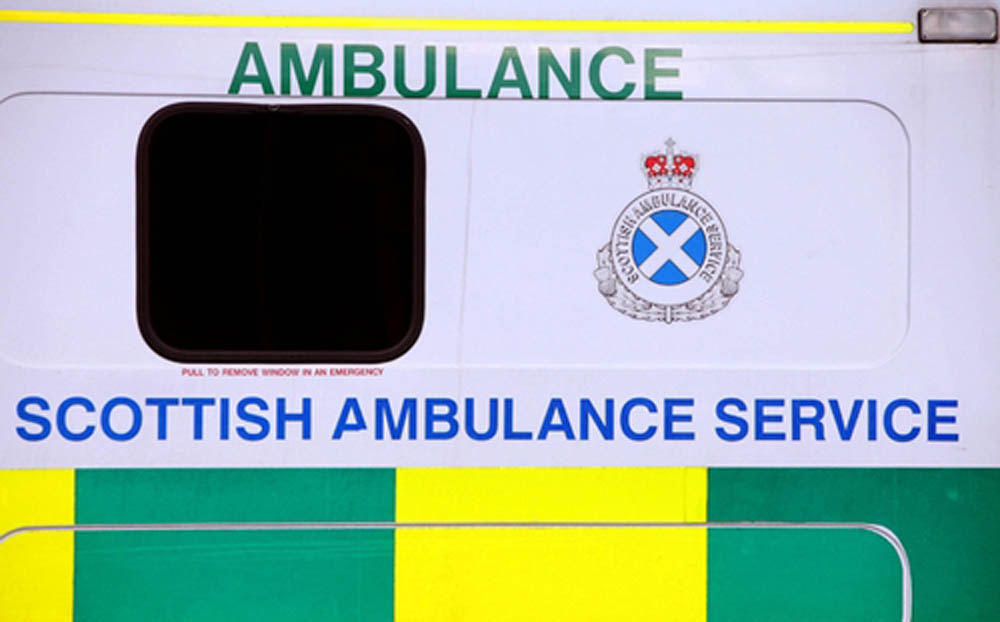PLANS have been introduced to force paramedics to learn Gaelic.
The new proposals are a part of the Scottish Government’s “National Gaelic Language Plan” – which aims to promote the traditional language.
Gaelic is currently spoken by just 1% of the nation’s population – mainly in the Highlands and Islands.
But new plans would force the whole Scottish Ambulance Service (SAS) to extensively train in the language – and to create a new bilingual logo for uniforms and vehicles.
Now the project has been slammed by critics – who accuse the government of “wasting money” and “playing political games” with the emergency services.
The plans were outlined in a 30 page draft of the SAS’s language plan for 2016 – 2020.
In the report Pauline Howie – the SAS chief executive – says: “The Scottish Ambulance Service is committed to the aspirations and objectives included in the National Gaelic Language Plan.

“Gaelic is a precious part of our communities, culture and heritage, and our plan will
help to ensure it can be a flourishing and sustainable part of our future.”
It then goes on to outline 25 “actions” for the emergency medical service.
These include the delivery of “Gaelic awareness and language skills training”.
It also outlines plans to “create a bilingual corporate logo (Gaelic and English) which demonstrates equal respect for both languages, for use as standard across the Service, and as replacement for any previous logos.”
Other projects include encouraging Gaelic speakers to use the language at work, introducing Gaelic into the service’s emails and giving patients the option to make official complaints in Gaelic.
The service has not given any indication of how much such plans would cost – but they are now asking for feedback on the draft plan.
Alex Johnstone – MSP for the north-east – said: “This is the Scottish Government’s obsession to push Gaelic at all costs rearing its ugly head again.
“The SNP should be supporting staff to improve response times and cut down on sickness absence, not playing political games with paramedics.”
And taxpayer’s groups have also hit out at the plans.
Eben Wilson – director of Taxpayer Scotland – said: “The costs of these initiatives are never made clear and we wonder how many people would vote for this if asked.
“This is no time for ‘nice to have’ politics.”
But the Scottish Government defended their plans.
A spokesman said: “Efforts to support a future for the Gaelic language have enjoyed cross-party support.”
An SAS spokesman said: “Under the terms of the Gaelic Language (Scotland) Act 2005, all public bodies are required to prepare gaelic language plans.
“The Scottish Ambulance Service is currently consulting publicly on its draft Gaelic Language plan to 2020, which sets out how it will play its part in sustaining the future of Gaelic and creating practical opportunities for its use.”
Under Scottish Government legislation all public bodies and organisations across the nation have to devise similar plans.
In October Police Scotland introduced similar plans to rebrand their equipment with a bilingual logo.
And in August last year they were ridiculed for unveiling their new helicopter rebranded with Gaelic.
Disgruntled taxpayers took to Twitter to vent after spotting an image of the new yellow and black helicopter with “Poileas Alba” written on it.
One user – Dr Cromarty – wrote: “At least the 1% of Scots criminals who speak Gaelic will be worried when the cops are after them.”
Speaking at the time Jonathan Isaby, Chief Executive of the TaxPayers’ Alliance said: “Money is tight and every penny has to go towards crucial frontline policing.
“Spending taxpayers’ money on a vanity project paint job is exactly the sort of waste we need to cut out.”
